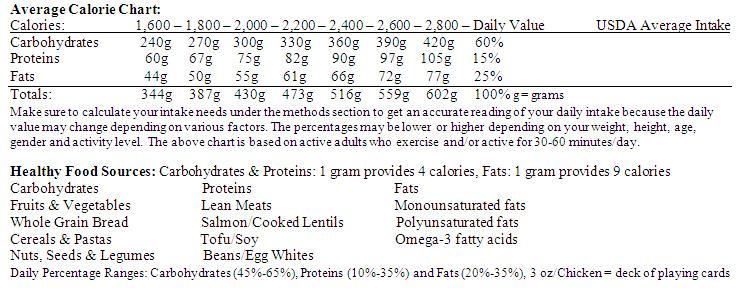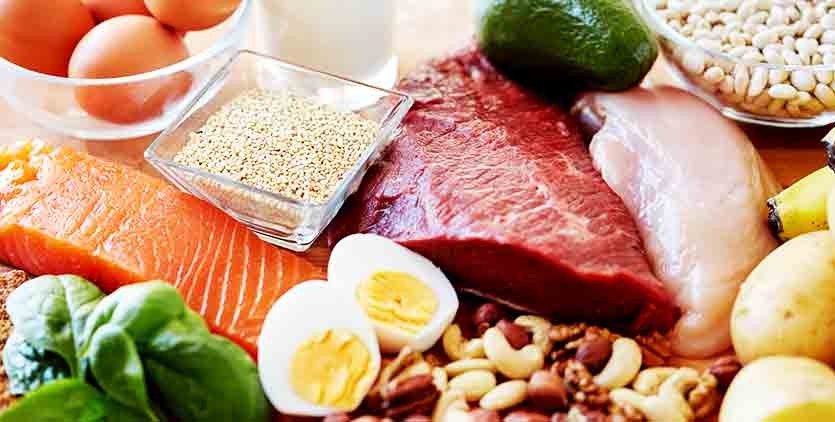Why are Carbohydrates important for you?
Carbohydrates are important since they will take up most of what you eat throughout the day. Carbohydrates help fuel your body and is the primary source for your brain and muscles. The brain will use the carbohydrates when they are broken down into glucose. The brain cannot use any other fuel to properly function. Carbohydrates are also used by your body’s muscles and organs because carbohydrates are fast acting and readily available.
Click on the Glycemic Index section to find out food sources and how carbohydrates are used in the body.
Why are Proteins important for you?
Since you cannot store protein in your body getting enough protein each day is very important for muscle building and recovery. You can get protein in a variety of foods, but chicken is most widely known and is not always prepared and/or consumed the most healthy way. When having chicken make sure it is broiled, baked or grilled, rather than deep fried or breaded. Protein keeps our body working properly and is essential for muscles, cartilage, ligaments, skin and hair. Whether you’re a vegetarian or a meat eater protein is essential for a balanced diet.
Food Sources:
beef, poultry, fish, eggs, dairy products, nuts, seeds, and legumes like black beans and lentils
Why are Fats important for you?
Fats are essential for a balanced diet, but don’t think that if you cut out fats completely that you are automatically going to lose weight because there are healthy fats that your body needs for many functions. One big function is that you simply need fat for cushioning for your internal organs and helps the conduction of nerve impulses throughout your body.
Food Sources:
Types of Healthy Fats:
Monounsaturated: olive oil, peanut oil, canola oil, avocados, nuts and seeds
Polyunsaturated: vegetable oil, nuts and seeds
Omega-
Saturated fats, trans fats and dietary cholesterol are categorized as harmful fats if eaten in excess amounts. Examples: animal products (meat, poultry, eggs, dairy, seafood), partially hydrogenated vegetable oils, baked goods, fried foods, and shortening and margarine. Less than 10% of harmful fats are recommended for healthy daily intake.
Methods:
Protein: Weight in pounds divided by 2.2 = weight in kg, weight in kg x 0.8 to 1.8g = intake needs in grams
Example: 140 lbs divided by 2.2 = 64kg x 1.05g = 67g/day – based on a 2,000 calorie intake w/ a person who is active.
Sedimentary: 0.08g, Moderately Active: 1.2g, More Active: 1.5g, Very Active: 1.8g
1,800 calories x .20/.30/.50 = calories divided by 4/9 calories = grams of daily intake needs
Example: 1,800 x .15 (15%) = 270 calories from protein, 270 calories divided by 4 calories = 67g/day

You can find the complete document (Counting Calories) under the resources section.
